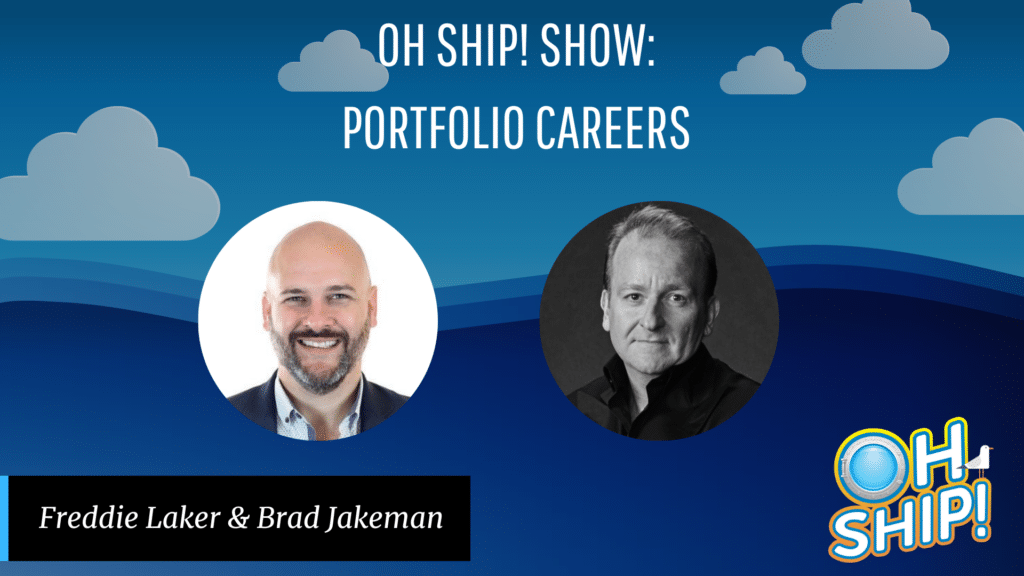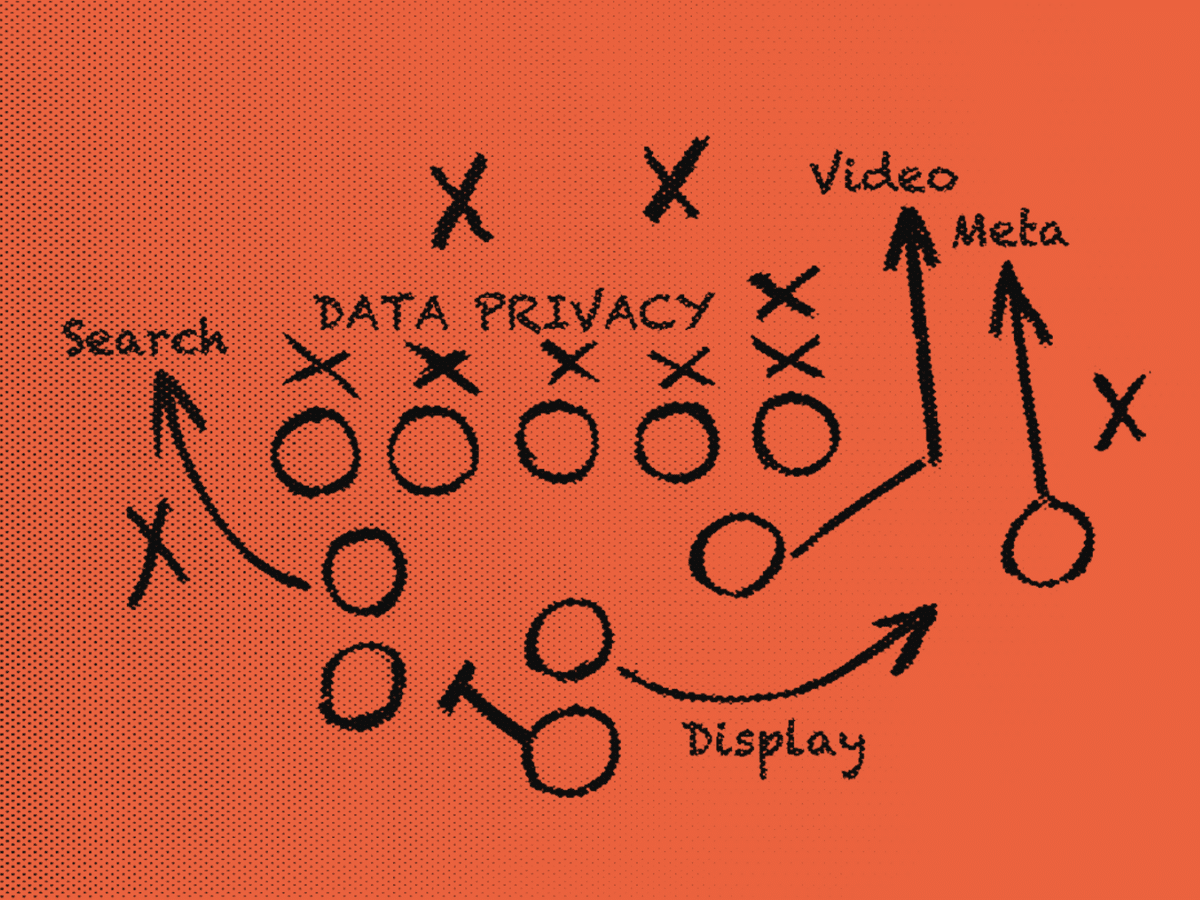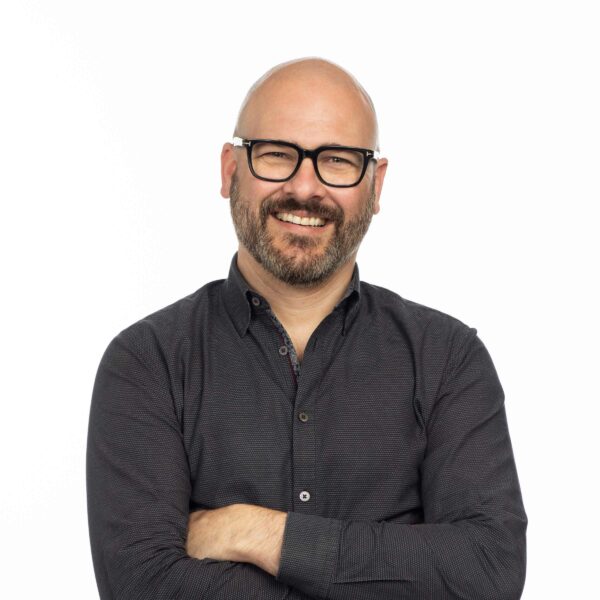Brad discusses the impetus behind his career change and why he’s more satisfied with his work now than ever.
Brad Jakeman has had an incredible career, which includes having served as president of the Global Beverages brand at Pepsi. He could easily have stayed in the full-time, salaried career realm, but he didn’t. “I describe myself as the busiest unemployed person in America,” he jokes. Read on to learn about the alternative path he chose and how he made the switch.
What is a portfolio career?
Whereas the traditional idea of a career involves working for one company in a salaried job, a portfolio career steps outside of that model. It means creating the career you want out of various smaller components that make up a greater whole. It could involve several ongoing “gigs” such as consulting or creative work. And it’s more than just one thing plus another thing: It’s different elements coming together to fulfill a distinct strategy or vision.
“Now more than ever, through technology and the gig economy, a portfolio career is much more attainable than it was before,” Brad says.
A lot of people have a “side hustle,” often a passion project, Freddie explains. For some, this marks the beginning stage of a portfolio career, which may later involve several related side hustles that dovetail into a distinct mission.
What inspired him to make the leap?
Brad was working at PepsiCo under an inspiring CEO when he met up for dinner with a group of friends who all had portfolio careers. Outside the restaurant, he got held up on a call for twenty minutes. When he came in, two things were clear: 1) They’d all been talking about him, and 2) They were staging an intervention. They told him, “You work five times harder than any of us, and we’re ten times richer than you. And we have about 20 times more free time to spend with our friends and family than you.” That was a paradigm shift for him. He reflected on it later and realized he was ready to make the leap outside of the traditional career model.
Brad convened his personal board of directors, a group of very close friends who give excellent advice. One of them encouraged him to carry around a notebook with three columns while still in his current job. One column would be for all the activities he’s doing that he absolutely loves, another for all the things that feel laborious, and the third for the conditions under which he enjoys working most. His notes would serve as a filter for evaluating what’s next. His notes emphasized that he wanted to avoid bureaucracy, meetings for the sake of meetings, and traveling for work, and he wanted more flexibility so he could spend more time in his house by the beach and with his husband. He wanted to focus on creative entrepreneurship and having a societal impact. Those criteria helped him define his life moving forward.
What makes up his personal portfolio?
Brad is passionate about working at the intersection of society and business. His personal portfolio includes the following activities:
- Joining VCG as a senior advisor to assist on the marketing side.
- Co-founding and serving as a managing partner of a social impact venture fund to help entrepreneurs in the food and beverage space provide more affordably priced healthy foods to disadvantaged communities.
- Sitting on a number of boards, like the board of the Humane Society and Reporters Without Borders, along with chairing the LGBT Center in New York. He’s on a number of for-profit boards as well.
When you’re looking at portfolio options through the same filter, you end up with a variety of pursuits that are highly complementary, says Brad. “My board work greatly influences my understanding of what’s happening in society,” he explains. “That helps me with the venture fund; it helps me with my work at VCG. The work I do at VCG really helps me understand how the business world is shaping and dealing with macro issues with COVID-19.” In turn, those insights help him on the board side and venture fund side.
What advice does he give others?
When people tell him they want a career change, he asks, “Is it something you’re running toward, or is it something you’re running from?”
One of the biggest pieces of advice Brad received was to focus on areas of passion. “If you focus on those areas of passion, you tend to be able to do a better job in those pursuits, and when you do a better job in those pursuits, they tend to be more fulfilling and more profitable,” he says.
That proved true for him. He’s experimented with many different things since leaving PepsiCo. “I had no shortage of failures in that,” he says. But to him, a successful career isn’t just defined as being profitable. He realized that certain pursuits felt less fulfilling and involved more of the items in the second column of his list—the things that felt laborious rather than exhilarating. So, he refocused his efforts.
He also acknowledges his own privileged position; he had the financial means to take a risk in his career. If you don’t have the savings to go all in just yet, start with a side hustle, advises Freddie.
To define your portfolio career, consider the long-term impact you want your work to have and what makes you truly happy. Will the next generation think you’re doing something that has a net positive effect on society?
What Oh Ship! moments have most shaped him?
Brad only lasted 11 months at Macy’s. He thought he’d done a rigorous job of vetting whether it was the right place, talking with numerous people beforehand, but he realized his first impressions were all wrong. On his first day, he thought, “I think I’ve just joined a company that wants to change without changing anything.”
But his efforts weren’t all in vain. “I learned so much from that experience,” he says. “I learned how to drive a change agenda through an organization by bringing people along with you, versus doing things that might cause armies to form internally against you.” It reinforced the importance of communication as well. While it was a painful experience, he took a lot of valuable lessons from it.
Considering a portfolio career? Try the three-step method that Brad described and seek out complementary pursuits that lie at the intersection of what you find enjoyable and what you feel is deeply important. You may just end up with a richer and more rewarding career as a result.






